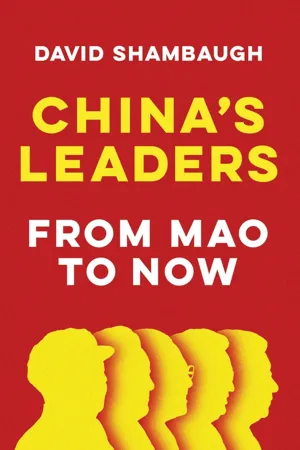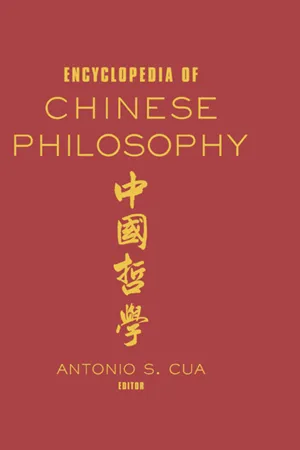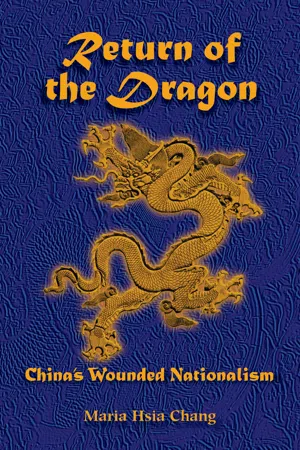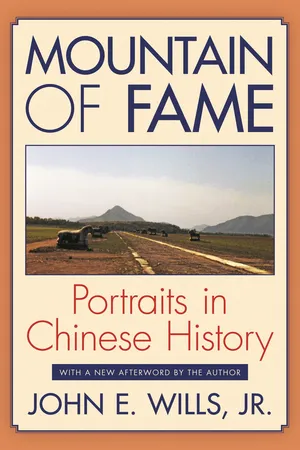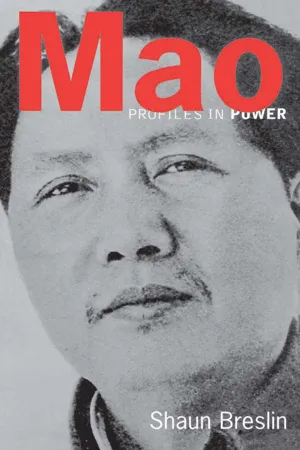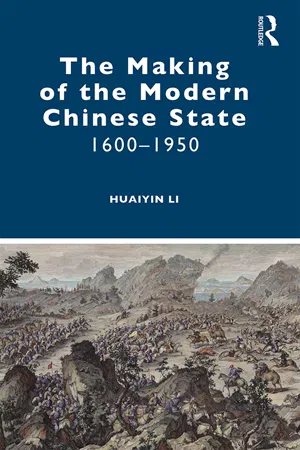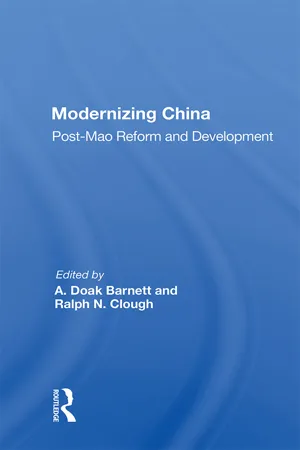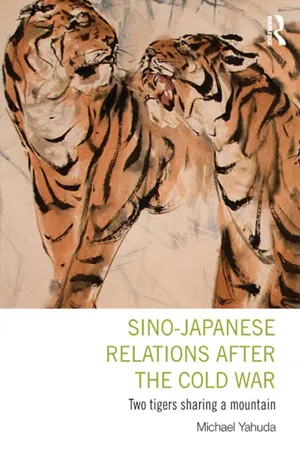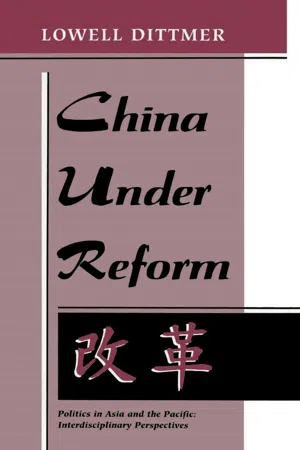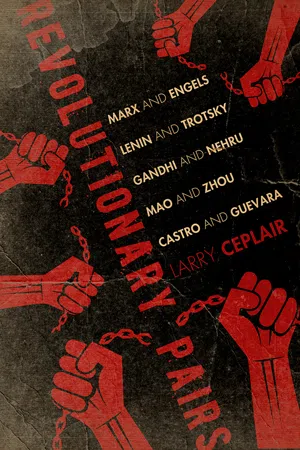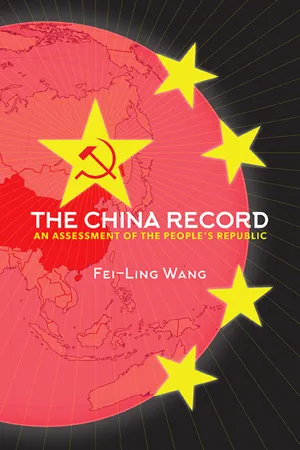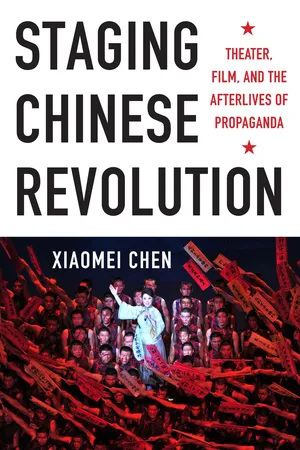Politics & International Relations
Mao Zedong
Mao Zedong was a Chinese communist revolutionary and founding father of the People's Republic of China. He served as the Chairman of the Communist Party of China from 1949 until his death in 1976. Mao's leadership and policies, including the Great Leap Forward and the Cultural Revolution, had a profound impact on China's political and social landscape.
Written by Perlego with AI-assistance
12 Key excerpts on "Mao Zedong"
- eBook - ePub
China's Leaders
From Mao to Now
- David Shambaugh(Author)
- 2021(Publication Date)
- Polity(Publisher)
Although Mao himself only left China twice in his life (both trips to the Soviet Union), he was also very interested in the outside world and foreign relations. He fancied himself a geo-strategist and voraciously read Chinese ancient strategists (Sun Zi, Cao Cao, Zhu Geliang, the Three Kingdoms, etc.), and he loved to discuss geopolitics with foreign visitors. With the able assistance of Premier Zhou Enlai, Mao also took a very hands-on approach to managing China’s foreign and national security policy. It was Mao who forged both the Sino-Soviet alliance and then facilitated its breakup. It was Mao who made the decision to enter the brutal Korean War against the United States. It was Mao (together with Lin Biao) who masterminded the aggressive efforts to export revolution around the world during the 1960s and 1970s. It was Mao (on the advice of Zhou Enlai and the three Marshals) who took the strategic decision to reach out to President Nixon and the Americans in 1970–1971 (Mao had in fact sent signals a year prior to Nixon). It was Mao who approved the Four Modernizations program in 1973, which initiated China’s turn to the West and Japan for trade and investment. So, the Chairman was deeply involved in China’s external dealings throughout his lifetime.Mao was thus a very complicated character. His personality and leadership style have been the subject of numerous biographies, psychological and behavioral analyses, and speculations by foreign scholars and observers.6 Chinese accounts of Mao all tend, not surprisingly, to be hagiographic. Only two, one by Mao’s former secretary Li Rui and another by his former doctor Li Zhisui, go beyond standard propaganda.7 The one by Li Zhisui, written after Mao’s death and published abroad, revealed much new information and was quite critical of his patient (I drew extensively on it in Chapter 2 ). Mao continues to be an enigmatic puzzle to this day—but his impact on China and the world was enormous. Why would such a tyrant still be eulogized? Foreign scholars continue to publish books about Mao and Maoism.8 Inside of China Mao continues to be revered—with his portrait hanging on Tiananmen Gate, his body resting in the center of Tiananmen Square, his face on every monetary note, his “thought” still studied, his revolutionary role still admired, and his role as father of “new China” still revered.Deng Xiaoping
Given his enormous stature and outsized impact on China, Mao was certainly not an easy act to follow. Successors to first-generation revolutionary leaders frequently struggle to establish their own legitimacy, respect, agency, and longevity. Chiang Kai-shek and Stalin were exceptions, as they took power when the fathers of the revolution (Sun Yat-sen and Vladimir Lenin) died, not long after the success of their revolutions and creation of new states, and both ruled for long periods. More often, after the revered father of the revolution dies, a relatively short-lived caretaker successor is installed following a power struggle and brief transitional period, before another leader emerges for the longer term. Such was the case with Khrushchev’s succession to Stalin, before Brezhnev muscled him aside and ruled for eighteen years (1964–1982). - eBook - ePub
- Antonio S. Cua, Antonio S. Cua(Authors)
- 2013(Publication Date)
- Routledge(Publisher)
Mao Zedong (Mao Tse-tung)Stuart R. SCHRAMIn the course of a long and eventful life, Mao Zedong (1893–1976) was shaped by various influences, both Chinese and western. The primary purpose of this article is not to lay out in detail his intellectual itinerary, but to assess his overall contribution as a philosopher. In so doing, it is not, however, appropriate to treat “Mao Zedong’s thought” as though it were some kind of timeless essence that could be reconstructed on the basis of evidence selected arbitrarily from the whole corpus of his writings. In a China undergoing constant revolutionary upheaval, Mao’s ideas often changed significantly from one decade to the next, and any serious assessment must take these changes into account. I will therefore review the main phases in Mao’s development, before offering some generalizations by way of conclusion.The ideas Mao entertained in his youth provide a useful prelude to the thought of his mature years. The young Mao was in many respects a typical representative of the May Fourth generation, but his first known writing dates from June 1912, before he had felt the impact of the “new tide of thought.” In a middle-school essay in praise of Shang Yang, the eighteen-year-old Mao asserted: “Shang Yang’s laws were good laws. If you have a look today at the four-thousand-odd years for which our country’s history has been recorded, and the great political leaders who have pursued the welfare of the country and the happiness of the people, is not Shang Yang one of the very first on the list?” The fact that the people of Qin did not trust this great reformer he explained by the assumption that “at the beginning of anything out of the ordinary, the mass of the people always dislike it.” The Chinese people’s “ignorance and darkness during the past several millennia” had, he added, “brought our country to the brink of destruction” (Schram 1992, 1:5–6). - eBook - ePub
Return Of The Dragon
China's Wounded Nationalism
- Maria H Chang(Author)
- 2018(Publication Date)
- Routledge(Publisher)
2 Through a program of land reform and industrial development, the Republic of China (ROC) on Taiwan became newly industrialized in the 1970s. Beginning in 1987 in the last year of Chiang Ching-kuo’s presidency, political reforms transformed the island so that it became fully democratized by the mid-1990s.Meanwhile, on the mainland the victorious Communists installed a new government of the People’s Republic of China on October 1, 1950. After a century of foreign predation and internal turmoil, mainland China was finally unified under a strong government and the charismatic leadership of Mao Zedong. It seemed that China was on the threshold of a promising new beginning. That promise would, however, be systematically undermined by the radical vision of Mao.The New China of Mao Zedong
Born to a landowning peasant family in 1893, Mao was one of the founders of the Chinese Communist Party (CCP). In 1935, after a disastrous series of battles with the Nationalist forces, the Communists fled to Yan’an to seek refuge in the barren hills of northwestern China. There, the party rebuilt itself by appealing to Sun Yat-sen’s ideology and a populist anti-Japanese nationalism.3 By that time, Mao had emerged as his party’s undisputed leader.Through the 1930s and 1940s Mao and the CCP seemed to be genuinely animated by Sun’s ideas. In September 1937, for instance, the party’s central committee “solemnly declared” that “Dr. Sun Yat-sen’s Three People’s Principles [are] what China needs today” and that “our Party is ready to fight for their complete realization.” In October 1943, Mao maintained that the Communists’ activities in the war (against the Japanese) zones were completely compatible with the principles of Sun.4 Again, in 1945, Mao insisted that CCP policies gave expression to and had been inspired by “Dr. Sun’s principles.”5All of which seemed to indicate that, to the extent that they were sincere in their espousal of Sun’s ideology, Mao and his party were developmental nationalists at least in the interwar years. Like Sun, Mao yearned for a renewed China capable of resisting the impostures of foreigners and in command of the human and material resources to protect its sovereign integrity. Once the Communists acceded to power, however, instead of rebuilding China in accordance with Sun’s pragmatic program, Mao turned to the utopian futurism of Karl Marx, V. I. Lenin, and Josef Stalin. That Mao should choose that body of thought for the modernization of China is somewhat curious. - eBook - ePub
Mountain of Fame
Portraits in Chinese History
- John E. Wills, Jr.(Authors)
- 2012(Publication Date)
- Princeton University Press(Publisher)
19
Mao Zedong
• • • • • •A QIN emperor breaking the mold and reshaping his society for the ages, a would-be Great Teacher, a Wang Mang promoting himself and ignoring realities, a Three Kingdoms hero rushing ahead and riding the chaos, condescending admirer of the Taipings, youthful reader of Liang Qichao, poet-politician, stroller by Su Dongpo’s dike and the lakes of Qianlong’s palaces, urging his people to always do without hesitation or selfishness what they know is right, to work as hard as Yu and sacrifice themselves as readily as Yue Fei, Mao Zedong echoes in his own experience and his exhortations to his people an amazing number of the themes of this book. To understand him and his times, we need to know a lot about Marxism-Leninism, economic development, world politics—and also a lot about a Chinese heritage that Mao found both precious and a dead weight on the forward march of his people.As seen from the beginning of this book, China was too large to be held together by force alone; the attractiveness of the ideal of the good minister of the Son of Heaven, the possibility that any talented man could become such a minister through the examination system and the carefully regulated politics of the bureaucracy, the limitation of military power and the political roles of military men, all were essential to the unity of the vast empire. But the growth of effective military power was a basic aspect of survival in the modern world, and in China this growth and the disruption of the old civilian control structures set off an uncontrolled militarization that tore the country apart. By 1920 many were groping for new ways to control the military and reunite the country. Among the pieces of a solution were discipline of troops and their indoctrination in one form or another of nationalism and public spirit; mobilization of ordinary tradespeople, farmers, and workers as active participants in politics; and new ways of disciplining and indoctrinating a civil and bureaucratic elite. These developed in various forms and combinations. The famous Christian warlord Feng Yuxiang had real success in the first, little in the others. The reorganized Kuomintang of the 1920s and 1930s achieved much in the first and third, but had an ambiguous record on mass mobilization. Mao Zedong himself was led toward interest in mass mobilization by participation in efforts to protect his native Hunan against predatory military men. The Communist party eventually produced a powerful solution to all the pieces of this problem. The Chinese people still are grappling with the consequences of that solution. - In addition, the speed of the Guomindang capitulation in 1948 and 1949 left the CCP with a number of problems. The heartland of the revolution had been the guerrilla base areas of northern China and, after the Japanese surrender in 1945, the north-east. When they established the new People’s Republic in 1949, the communists lacked any real substantial support and power base in vast swathes of the country, particularly south of the Yangtze River. Furthermore, their power base in the major cities was also very weak, the urban CCP movement having been largely wiped out by the Guomindang ‘White Terror’ in the early 1930s. Governing revolutionary base areas was one thing, governing the entire country with all its complexities was another matter altogether.Overcoming these problems would be a significant challenge for any new regime. Simply restoring political control over a fragmented and impoverished nation, and rebuilding the economy from a century of neglect and devastation, would be enough to keep most leaders occupied for quite some time. But simple restoration of order was not enough for Mao. The revolution was not completed in 1949. For Mao at least, the seizure of power was only the beginning.. . .
Ruling China: Limits to Mao's Power
In many of the books and articles written about China in the 1950s and 1960s, there was a tendency to depict everything that happened as a result of Mao’s own initiatives. Such a ‘Mao-centric’ view of Chinese politics made things easier to understand. It was also excusable given the limited amount of reliable information that came out of China at the time. The CCP kept its internal disputes firmly behind closed doors, and presented an image of unity to the outside world, with Mao as the Great Helmsman and the supreme power. Furthermore, perceptions of how Stalin managed a totalitarian system in the Soviet Union provided an established framework that some scholars assumed could simply be transferred to analyses of other communist party states.We are in many ways entirely correct to talk in terms of ‘Mao’s China’ (he was the single most important figure in the country’s evolution after 1949) and to take a Mao-centric approach (he was the central figure to whom all other political actors referred in defining their own approaches and strategies). But China never was a totally totalitarian state, and Mao was never an all-powerful figure who could single-handedly shape the entire country and its destiny. There were considerable limits to Mao’s power, and the way that he tried to overcome these limits was an important determinant of the evolution of Chinese politics while he was alive. - eBook - ePub
- Huaiyin Li(Author)
- 2019(Publication Date)
- Routledge(Publisher)
The last step Mao took to seal his supremacy within the CCP was to have “the Resolution regarding Several Historical Issues” unanimously passed at the Seventh Session of the Party’s Sixth Congress on April 20, 1945. Central to the resolution was a new narrative of the Party’s history that highlighted the repeated struggles between the correct political line represented by Mao and the wrong line pursued by dogmatist Party leaders. Nevertheless, the Resolution should not be merely interpreted as a result of Mao’s manipulation of the Party leadership for his personal power. Nor should the Rectification Campaign be simply seen as another round of the power struggle between Mao and his opponents within the Party. In fact, no one had been able to challenge Mao’s standing within the CCP since he received the Comintern’s endorsement of his leadership in September 1938, as mentioned earlier. It was likely, to be sure, that seeking revenge on his old-time adversaries and competitors within the Party (including dogmatists such as Wang Ming as well as empiricists such as Zhou Enlai) could be part of the reasons behind Mao’s launching the Rectification Campaign. For Mao, however, the campaign as well as the drafting and passing of the Resolution were necessary not only because they worked to turn himself into a full-fledged leader of the Party and to gloss his leadership with a layer of charisma, but more importantly because they were indispensable for the CCP to achieve a high degree of political identity and organizational solidarity on the basis of a party-wide consensus on his political correctness and ideological supremacy. Likewise, the party elites’ acceptance of Mao’s leadership should not be simply interpreted as a result of their failure in rivalry with him or their submission to his growing dictatorship within the Party; it more or less reflected their consensus on his outstanding ability to lead the Red Army and the entire Party as well as the persuasiveness of his theory on the Chinese Revolution. Therefore, the description of Mao in the opening paragraph of the Resolution was not so much a flattery as a shared recognition among the party elites of Mao’s competence as the leader of the Party:Ever since its birth in 1921, the Communist Party of China has made the integration of the universal truth of Marxism–Leninism with the concrete practice of the Chinese revolution the guiding principle in all its work, and Comrade Mao Zedong’s theory and practice of the Chinese revolution represent this integration. … In the course of its struggle the Party has produced its own leader, Comrade Mao Zedong. Representing the Chinese proletariat and the Chinese people, Comrade Mao Zedong has creatively applied the scientific theory of Marxism–Leninism, the acme of human wisdom, to China, a large semi-feudal and semi-colonial country in which the peasantry constitutes the bulk of the masses and the immediate task is to fight against imperialism and feudalism, a country with a vast area and a huge population, where the situation is extremely complicated and the struggle extremely hard, and he has brilliantly developed the theories of Lenin and Stalin on the colonial and semi-colonial question as well as Stalin’s theory concerning the Chinese revolution. It is only because the Party has firmly adhered to the correct Marxist–Leninist line and waged a victorious struggle against all erroneous ideas opposed to this line that it has scored great achievements. - eBook - ePub
Modernizing China
Post-Mao Reform And Development
- A. Doak Barnett(Author)
- 2019(Publication Date)
- Routledge(Publisher)
The decline in charismatic authority in China began with the Third Plenum of December 1978, which condemned the personality cult surrounding Mao Zedong, implicitly criticized the attempts to inflate the personal prestige of Hua Guofeng, and announced a new period of collective leadership. Mao's errors were acknowledged in increasingly frank and direct terms, and his political and ideological accomplishments were redefined as the result of collective party leadership rather than of personal genius. Symbolic of the decharismatization of the late chairman was the transformation of the Mao Zedong Memorial Hall, in the heart of Peking's Tiananmen Square, into a memorial to the entire Long March generation of party leaders—instead of a monument to Mao himself. Further measures have included the removal of Mao's portraits from most public spaces and the more sparing use of his quotations in Chinese publications.Changes have also occurred in the party's attitude toward ideology. The content of official doctrine has been almost completely transformed. The party has repudiated all the major tenets of late Maoism: that class struggle remains the principal contradiction in socialist society, that bourgeois ideas are likely to appear in their most dangerous form within the party itself, that combating bourgeois ideas requires a continuous revolutionary struggle by the proletariat, and that campaigns of mass criticism against "party people in authority taking the capitalist road" are the most suitable forms for undertaking such a struggle. Others, such as Mao's "theory of the three worlds," have been quietly deemphasized. Concepts such as humanism and alienation, associated with early Marxism but officially proscribed for many years, are now being rediscovered. A more critical attitude is being taken in some intellectual circles toward Lenin's theories of imperialism and the vanguard party.Second, the role of ideology has been reduced. Chinese leaders now acknowledge that a wide range of intellectual, scientific, and technical questions can be discussed without reference to ideological principles. The result is that a larger number of policy matters can be addressed on their own merits, relatively unconstrained by doctrinal considerations. Moreover, even in those areas in which it is deemed to be relevant, ideology is no longer regarded as a dogma that provides specific and infallible solutions to immediate political issues; instead, it is treated as a bundle of methods for analyzing policy problems and as a set of broad goals for the future.22 - eBook - ePub
Sino-Japanese Relations After the Cold War
Two Tigers Sharing a Mountain
- Michael Yahuda(Author)
- 2013(Publication Date)
- Routledge(Publisher)
In part that was due to his domestic agenda and in part to the international context. Upon the establishment of the People’s Republic of China (PRC) in 1949, Mao Zedong famously declared that the Chinese people have stood up and that never again would they be humiliated. He also placed the “New China” within the Communist bloc and pledged to develop a socialist system within the country. He neatly integrated nationalism or patriotism with socialism or communism. One of the main themes of his program was the emphasis on class struggle. Chinese history was rewritten to reflect the significance of class struggle as the main driving force of the country’s development. 3 Modern history was written with the aim of showing that it was only with the rise of the Communist Party that it became possible for the Chinese people to overcome their feudal past, imperialist oppression and the “bureaucratic-capitalism” of the KMT. 4 Only by building socialism, according to Mao, would the Chinese people be able to embark on the nationalist road to wealth and power that would make the country great again. In contrast to his successors, Mao tended to put the blame for China’s earlier abject condition during the “century of shame and humiliation” on domestic failures which made the country vulnerable to foreign aggressors rather than on the foreigners. Mao sought to build the Chinese nation anew. Although he claimed that the Communist Party of China had played the main role in the defeat of Japan in 1945, he put the main stress of his historical claim to legitimacy on the defeat of the KMT in the civil war that followed, which culminated in the foundation of the new state, the People’s Republic of China, in October 1949. The KMT had been supported and armed by the US (albeit not wholeheartedly). Hence Mao claimed to have repulsed the forces of feudalism and imperialism as well as to having defeated the KMT in the civil war as his primary achievement - eBook - ePub
- Lowell Dittmer(Author)
- 2018(Publication Date)
- Routledge(Publisher)
87 Yet he was never publicly humiliated and was even allowed to retain a seat on the CC.Upon the elimination of residual Maoist opposition, Deng’s reform program surged forward in the early 1980s, with the generally excellent economic results noted in Chapter 1 . However Deng, like Mao, has managed to jeopardize the staying power of his legacy by some ill-considered actions during the terminal years of his reign.Deng’s Leadership Legacy
If we can say that Mao Zedong managed to synthesize the influence of traditional imperial statecraft with that of Marxist revolution, we can explore a similar synthesis in Deng’s leadership: The two figures who shaped his views more than any other were the antipodal Liu Shaoqi and Mao Zedong. From Liu Shaoqi he seems to have derived his basic theoretical premises and policy preferences, known during Mao’s heyday as “revisionist” and more recently rechristened “reform”(“revisionism” vanished from the Chinese political vocabulary in 1978). The roots of this theoretical and policy heritage were laid bare during the campaign to laud Deng Xiaoping Thought (Deng Xiaoping sixiang ) that began in the late 1980s, accelerating in preparation for the Fourteenth Party Congress in October 1992. Here we learn that “the heart of Marxism” is to “develop productive forces” and raise living standards:We advocate communism. But what does that mean? It means the principle of from each according to his ability and to each according to his needs, which calls for highly developed productive forces and overwhelming material wealth. Therefore, the fundamental task for the socialist stage is to develop the productive forces. The superiority of the socialist system is demonstrated by faster and greater development of the productive forces than under the capitalist system. … Socialism means eliminating poverty. Pauperism is not socialism, still less communism.88 - eBook - ePub
Revolutionary Pairs
Marx and Engels, Lenin and Trotsky, Gandhi and Nehru, Mao and Zhou, Castro and Guevara
- Larry Ceplair(Author)
- 2020(Publication Date)
- The University Press of Kentucky(Publisher)
By 1940, the Red Army had grown exponentially, to four hundred thousand members, and the CCP had multiplied its membership five-fold. Within Mao’s base area, there lived 50 million people. A cult of worship began to grow up around him. Mao changed noticeably: his sense of mission and his vanity increased, and an authoritarian personality emerged. He “laid down rigid dogmas and orthodoxies in political and cultural life, suppressed dissent, and harried those who failed to conform.” He inaugurated a rectification campaign to root out sectarianism, subjectivism, and stereotyped writing and to purge the pro-Comintern faction. In September, during an expanded meeting of the Politburo he railed about the “errors” and “mistakes” of the “Stalinists,” who, along with Zhou, were demoted. The new three-person leadership group: Mao, Liu Shaoqi, and Ren Bishi, ordered Zhou to return to Yan’an. Zhou responded by publicly and effusively proclaiming his loyalty and subordination to Mao:The Party’s 22-year history has proved that the views of Comrade Mao Tse-tung were formed and maintained with historical perspective…. Through him, and after his effort to develop it and use it, Communism has gone beyond being a mere body of ideology suitable to China; it has become rather an ideology that is indigenous and has grown roots in the soil of China. Comrade Mao Tse-tung has integrated Communism with the movement of Chinese national liberation and the movement of improving the livelihood of the Chinese people…. Because of his leadership, the strength of the Party has attained an unprecedented height.39But that oath of fealty was not enough for Mao, who found himself in the throes of a dilemma with Zhou: he needed Zhou to manage the party’s institutions and enterprises, but he harbored an irrational fear that Zhou was positioning himself as a contender for power. Thus, Mao believed he had to keep Zhou off balance. In the autumn of 1943, Mao forced Zhou to deliver, over a span of five days, a series of self-critical speeches. Zhou admitted to a series of political crimes and labeled himself a “political swindler” who suffered from enormous personal vanity, selfishness, and a lack of principles, caused by his roots in a “run-down, feudal aristocratic family.” He blamed his pampered upbringing for making him overly obedient and too willing to compromise. He also admitted to a fear of offending people and too carefully weighing gains and losses. David W. Chang is especially harsh in his assessment of Zhou’s actions during those years, accusing Zhou of becoming “a self-abasing slave to Mao,” acting “with a dauntless lack of personal integrity” and “a mortal fear of disgrace.”40 - eBook - ePub
The China Record
An Assessment of the People's Republic
- Fei-Ling Wang(Author)
- 2023(Publication Date)
- SUNY Press(Publisher)
29 To observers in hindsight, like the authors of two international bestsellers, Mao wasIn contrast, Mao is revered by the current CCP leadership asa liar, ignoramus, fool, philistine, vandal, lecher, glutton, hedonist, drug-peddler, ghoul, bully, thug, coward, posturer, manipulator, psychopath, sadist, torturer, despot, megalomaniac and the greatest mass murderer of the twentieth century-in short, a monster, equal to or worse than Hitler and Stalin. He cared nothing about the fate of the Chinese people and his fellow human beings, or even his close friends and relatives. He was driven by bloodlust and the craving for power and sex. He ruled by terror, led by native cunning.30a great Marxist; a great proletarian revolutionary, strategist, and theorist; the great trailblazer of the Sinicization of Marxism; and a great Chinese patriot and national hero in modern history; the core of the first-generation leadership of the Party, and the epic great man who led the Chinese people to completely change their fate and the outlook of their country […] a great figure leading the tides of the Chinese nation and world progression.31In reality, Mao may not have exactly fit into the villain stereotype—he “was no racist,” as all were “equally” beneath him as “the people’s emperor”—but he did try to start a world war, “was responsible for the death of more people than any other dictator in the twentieth century,” and drove the Chinese people “into the abyss of bloody social experiments,” as observed by some of his biographers. Firsthand observations seem to suggest that Mao likely suffered from serious mental illness from the early 1950s on, characterized by deep paranoia, emotive irrationality, a dysfunctional family life, sexual overindulgence, delusions, fantasies, and an eternal fear of losing power.32 - eBook - ePub
Staging Chinese Revolution
Theater, Film, and the Afterlives of Propaganda
- Xiaomei Chen(Author)
- 2016(Publication Date)
- Columbia University Press(Publisher)
To contextualize these readings, I examine additional plays, films, and TV drama series on Mao’s coleaders, including Ren Bishi, Peng Dehuai, and Zhou Enlai, whose staged theatrical events could implicitly point to Mao’s post-1949 mistakes such as the Anti-Rightist Movement, Great Leap Forward, and Cultural Revolution, which brought down coleaders such as Peng Dehuai, Zhang Wentian, Liu Shaoqi, Lin Biao, and others. Discussing how several close associates were “staged” together with Mao can help us tease out different aspects of their stories that offer similar or contrasting values and implied critiques against Mao. They could assume multiple roles: (1) as coleaders who had shared Mao’s vision in the past to validate the legitimacy of the CCP rule in the present; (2) as victims to evoke memories of “unstaged” or “unstageable” stories of their persecution to challenge the foundation of a one-party state; (3) as recognizable characters to showcase actors’ unique talents playing the role of the leaders for theater entertainment; (4) as diverse dramatic personae such as a fearless rebel as seen in Peng Dehuai, a diseased and hence “incorruptible leader” as seen in Ren Bishi, and as a manipulative survivor or skillful diplomat as seen in Zhou Enlai; (5) a combination of some or all these points depending on the audience’s background, perspectives, and relationships to theater. Taking together performances on leaders and those to be led, this chapter provides a balanced and complex picture of how revolutionary epics are explored in order to “harmonize” contradictory and multifaceted voices and positions on the center stage of contemporary politics thanks to their highly politicized and theatrical nature, both in revolutionary “history” and in its representations.Mao Plays as Political Commentary: Can a Peasant Leader Never Forget His Roots?Besides Shi Dakai, Mao Zedong was equally fascinated by Li Zicheng, a peasant uprising leader who had overthrown the Ming dynasty and established the Dashun Court (大 顺 朝 ) in 1644 but was quickly defeated by his imperial enemies. According to one memoir, Mao declined the opportunity to work in Shanghai for the CCP Central Committee after the failure of the great revolution of 1927 because he believed that the main reason for Li Zicheng’s defeat was because he did not have a military base of his own; Mao thus learned from Li’s mistakes and threw himself into establishing the first CCP military base in Jinggangshan, so it was told in party narratives and memoirs.5
Index pages curate the most relevant extracts from our library of academic textbooks. They’ve been created using an in-house natural language model (NLM), each adding context and meaning to key research topics.
Explore more topic indexes
Explore more topic indexes
1 of 6
Explore more topic indexes
1 of 4
